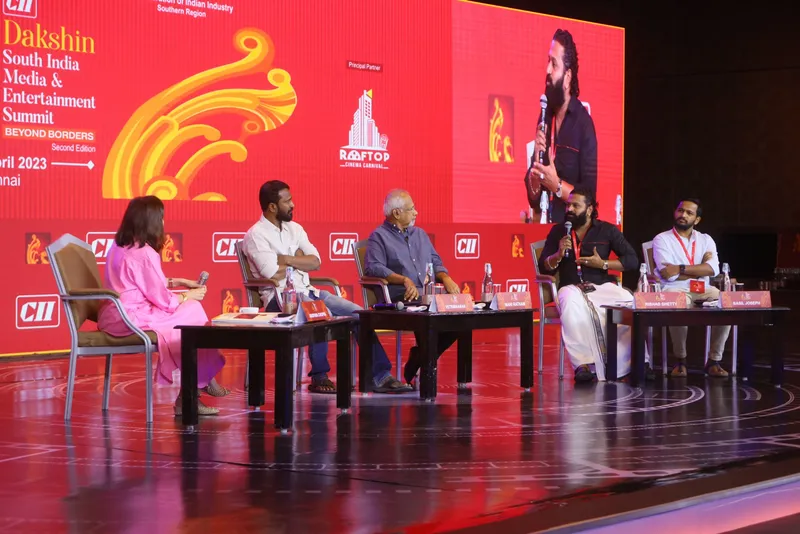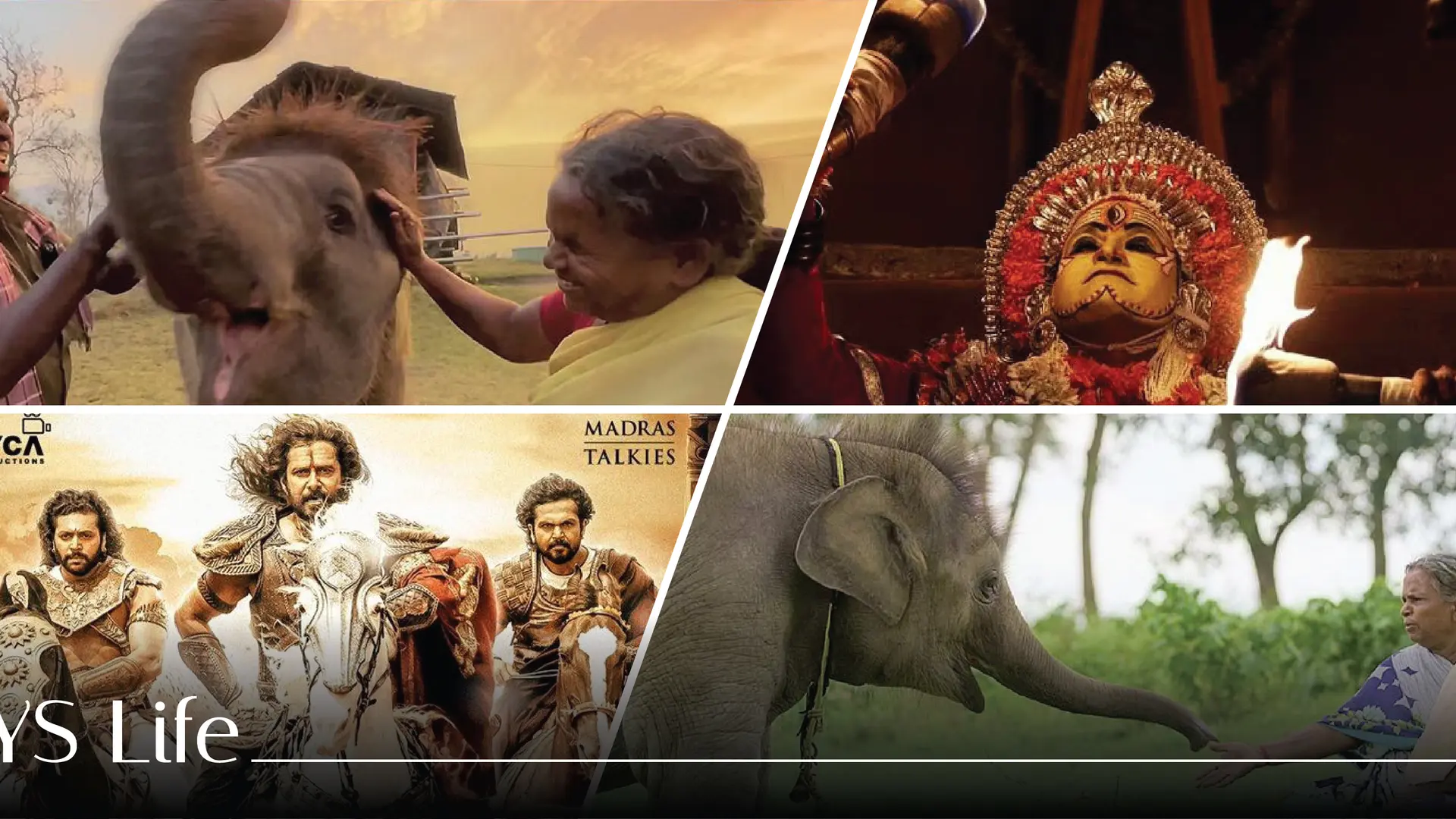‘Rooted stories have the power to cross boundaries’
Indian filmmakers and movie directors discuss the importance of telling stories from one’s own world with courage and sincerity.
Stories rooted in the local milieu and the cultural heartland have the power to cross boundaries and reach people across the country and the world too, concur filmmakers and movie directors from the Indian film fraternity. This has been amply demonstrated by recent movies from South India such as Kantara, RRR, Ponniyin Selvan, and the Oscar-winning documentary The Elephant Whisperers.
Discussing the growing popularity of South Indian films and their pan-Indian and global appeal, at Dakshin - South Indian Media and Entertainment Summit, conducted by the Confederation of Indian Industry in Chennai, directors from the Indian movie industry emphasised the importance of telling stories of people from one’s own world with courage and sincerity.
Local stories, global appeal
Stories that are rooted have a good reach among people; otherwise they create a disconnect with the audience, said actor-filmmaker Rishab Shetty, who directed Kantara. The Kannada film, set in the fictional village of Dakshina Kannada, explores the ideological conflict between human beings and nature. It tells the story of a young tribal who dons the traditions of his ancestors to seek justice.
“I draw inspiration from my village and rituals in every village,” he said, and made a reference to the rural customs surrounding guardian deities and the Viking rituals.
Kartiki Gonsalves, the director of The Elephant Whisperers, said emotions such as love and empathy have a universal connect.
Winner of the Academy Award for the Best Documentary (Short Subject) this year, The Elephant Whisperers narrates the poignant story of a couple from the Kattunayakan tribe in Nilgiris who look after an orphaned elephant calf named Raghu.
“A lot of things divide us, but love and empathy have the power to cross borders, reach all walks of life… and unite us as people,” she said.
While South Indian movies have traversed borders and gained acceptance globally, Tamil movie director and National Award winner Vetrimaaran cautioned against setting out with an agenda to make movies for the whole world.
“We want to tell stories from our own world. If it connects with the world, fine. But if we start making movies for the whole world, we may end up making compromises,” he said.

Directors Vetrimaaran, Mani Ratnam, Rishab Shetty, and Basil Joseph at a panel discussion at Dakshin - South India Media & Entertainment Summit. Photo credit: CII Southern Region (Twitter)
Filmmaker Anurag Kashyap, the man behind movies such as Dev D and Gangs of Wasseypur, elaborated the richness of “deeply rooted” South Indian films.
“Those visuals I don’t see in Hindi cinema,” he pointed out. He also complimented Tamil cinema for its “musical moments” and “expressions of love”.
Filmmaker R Balki too discussed his love for Tamil cinema—especially the music of Ilaiyaraaja—which, he confessed, put “the fever of cinema” in him.
Divisions must go
Commenting on the general perception in the Western world that Bollywood is Indian cinema, renowned director and producer Mani Ratnam said, “If Hindi films stop calling themselves ‘Bollywood’, this will change. These are Indian films.”
Perhaps it is time to stop labelling movies such as those from Bollywood, Kollywood, and Mollywood, and celebrate Indian films that tell stories with courage and conviction.
Edited by Megha Reddy







